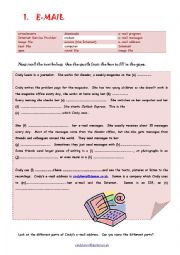
|
EMAIL & INTERNET
Two pages of exercises working around email and internet vocabulary. Complete with key.
Level: intermediate
Age: 14-100
Type: worksheet
Downloads: 92
|
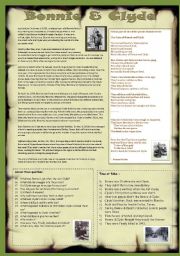
|
BONNIE & CLYDE
A short summary of the life of Bonnie & Clyde and their downfall. Followed by questions and true or false. Key included.
Level: intermediate
Age: 14-100
Type: reading
Downloads: 93
|
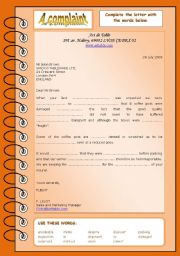
|
A letter of complaint
Fill in the letter with the words in the box. Key included.
Level: intermediate
Age: 18-100
Type: worksheet
Downloads: 27
|
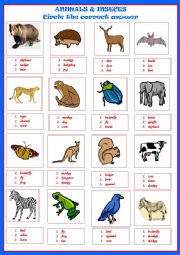
|
ANIMALS INSECTS
Animals and insects - multi-choice. Choose the correct word under each picture. Have a nice week!
Level: elementary
Age: 8-17
Type: worksheet
Downloads: 41
|
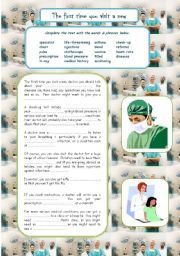
|
Visiting a doctor
Students have to fill in the text with the missing words on the first page. Followed by a roleplay on the second page. Complete with key.
Level: intermediate
Age: 16-100
Type: worksheet
Downloads: 82
|
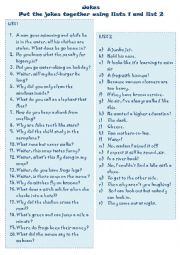
|
JOKES
Students have to put the jokes back together using the two lists, this can be done in pairs. If they are advanced enough they should have a good laugh at the end.
Level: intermediate
Age: 16-100
Type: worksheet
Downloads: 154
|
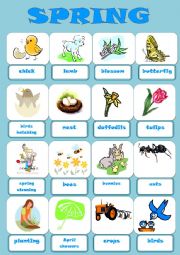
|
SPRING PICTIONARY
Something nice to hand out or pin up in the classroom. Helps them learn the vocabulary.
Level: elementary
Age: 10-17
Type: flash-card
Downloads: 119
|
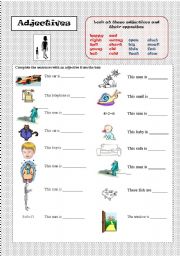
|
ADJECTIVES
A simple worksheet for beginners working on adjectives and their opposites.
Level: elementary
Age: 9-17
Type: worksheet
Downloads: 15
|
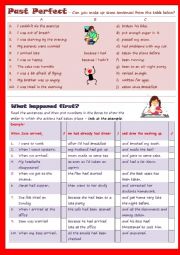
|
PAST PERFECT
Two exercises practising the use of the past perfect. Complete with key.
Level: intermediate
Age: 13-17
Type: worksheet
Downloads: 182
|
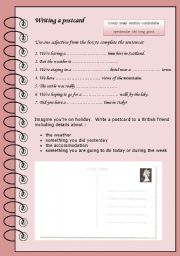
|
Writing a postcard
Little exercise using adjectives to describe holidays and then students write a postcard. Have a nice Easter weekend!
Level: intermediate
Age: 13-100
Type: worksheet
Downloads: 45
|